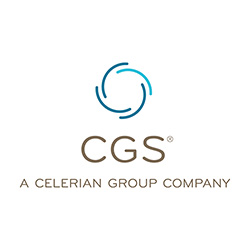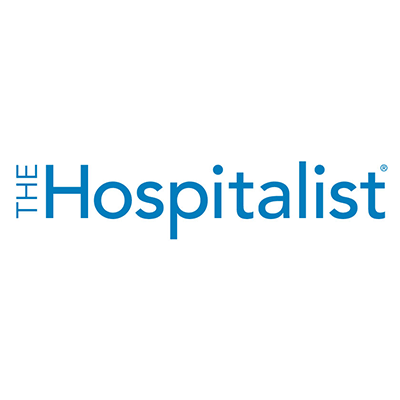99291
This code is used to report the first 30 to 74 minutes of critical care given on the same date. This code can be used ONLY ONCE per calendar date. Time spent DOES NOT need to be continuous. The time MUST be documented in the chart. The physician must spend over 30 minutes in total critical care time on any ONE calendar date to use the 99291. Time spent of less than 30 minutes (even if the care is critical) is reported using the normal hospital E/M codes.
99292
This code is used to report EACH additional 30-minute block of time beyond the first hour of critical care on any given calendar date. This code is used ONLY in conjunction with the 99291 code. EACH additional thirty minutes beyond the first hour of critical care is reported using this code. For example, if you spend 90 minutes on critical care in one calendar date, the encounter would be reported by using the 99291 for the first hour, plus one 99292 code used to report the additional 30 minutes. Please be aware that the 99292 has a 15-minute threshold which must be crossed before each 30-minute increment can be billed. For example, if you provided 74 minutes of critical care on ONE calendar date, this encounter would be reported using ONLY the first hour 99291 code (because the 15-minute threshold for the additional 30-minute code was not crossed). On the other hand, if you spent a total of 75 minutes during that ONE calendar date on critical care, you would report both the 99291 (for the first 60 minutes) and the 99292 for the additional 15 minutes. one second on critical care, this encounter would be reported by using both codes.
Critical care services include but are not limited to, the treatment or prevention or further deterioration of central nervous system failure, circulatory failure, shock-like conditions, renal, hepatic, metabolic or respiratory failure, postoperative complications, or overwhelming infection.
The CPT code 99291 (critical care, first hour) is used to report the services of a physician providing full attention to a critically ill or critically injured patient from 30-74 minutes on a given date. Only one unit of CPT code 99291 may be billed by a physician for a patient on a given date.
The provider's service must be medically necessary and meet the definition of critical care services as described below in order to be considered covered.
For any given period of time spent providing critical care services, the provider must devote his or her full attention to the patient and, therefore, cannot provide services to any other patient during the same period of time.
Time involved performing procedures that are not bundled into critical care (i.e., billed separately) may not be included and counted toward critical care time.
The provider's progress note must document that time involved in the performance of separately billable procedures was not counted toward critical care time.
Time involved with family members or other surrogate decision makers, whether to obtain a history or to discuss treatment options may be counted toward critical care time only when:




 journal.ahima.org
journal.ahima.org

 www.the-hospitalist.org
www.the-hospitalist.org
This code is used to report the first 30 to 74 minutes of critical care given on the same date. This code can be used ONLY ONCE per calendar date. Time spent DOES NOT need to be continuous. The time MUST be documented in the chart. The physician must spend over 30 minutes in total critical care time on any ONE calendar date to use the 99291. Time spent of less than 30 minutes (even if the care is critical) is reported using the normal hospital E/M codes.
99292
This code is used to report EACH additional 30-minute block of time beyond the first hour of critical care on any given calendar date. This code is used ONLY in conjunction with the 99291 code. EACH additional thirty minutes beyond the first hour of critical care is reported using this code. For example, if you spend 90 minutes on critical care in one calendar date, the encounter would be reported by using the 99291 for the first hour, plus one 99292 code used to report the additional 30 minutes. Please be aware that the 99292 has a 15-minute threshold which must be crossed before each 30-minute increment can be billed. For example, if you provided 74 minutes of critical care on ONE calendar date, this encounter would be reported using ONLY the first hour 99291 code (because the 15-minute threshold for the additional 30-minute code was not crossed). On the other hand, if you spent a total of 75 minutes during that ONE calendar date on critical care, you would report both the 99291 (for the first 60 minutes) and the 99292 for the additional 15 minutes. one second on critical care, this encounter would be reported by using both codes.
Critical care services include but are not limited to, the treatment or prevention or further deterioration of central nervous system failure, circulatory failure, shock-like conditions, renal, hepatic, metabolic or respiratory failure, postoperative complications, or overwhelming infection.
The CPT code 99291 (critical care, first hour) is used to report the services of a physician providing full attention to a critically ill or critically injured patient from 30-74 minutes on a given date. Only one unit of CPT code 99291 may be billed by a physician for a patient on a given date.
The provider's service must be medically necessary and meet the definition of critical care services as described below in order to be considered covered.
- Critical Care Definition– Critical care is the direct delivery by a physician(s) of medical care for a critically ill or injured patient.
- The care of such patients involves decision making of high complexity to assess, manipulate, and support central nervous system failure, circulatory failure, shock-like conditions, renal, hepatic, metabolic, or respiratory failure, postoperative complications, overwhelming infection, or other vital system functions to treat single or multiple vital organ system failure or to prevent further deterioration.
- It may require extensive interpretation of multiple databases and the application of advanced technology to manage the patient.
- Critical care services include but are not limited to, the treatment or prevention or further deterioration of central nervous system failure, circulatory failure, shock-like conditions, renal, hepatic, metabolic or respiratory failure, post-operative complications, or overwhelming infection.
- Clinical condition criterion – There is a high probability of sudden, clinically significant, or life-threatening deterioration in the patient's condition which requires the highest level of physician preparedness to intervene urgently.
- Treatment criterion – Critical care services require direct personal management by the physician. They are life and organ supporting interventions that require frequent, personal assessment and manipulation by the physician. Withdrawal of, or failure to initiate these interventions on an urgent basis would likely result in sudden, clinically significant or life-threatening deterioration in the patient's condition.
For any given period of time spent providing critical care services, the provider must devote his or her full attention to the patient and, therefore, cannot provide services to any other patient during the same period of time.
Time involved performing procedures that are not bundled into critical care (i.e., billed separately) may not be included and counted toward critical care time.
The provider's progress note must document that time involved in the performance of separately billable procedures was not counted toward critical care time.
Time involved with family members or other surrogate decision makers, whether to obtain a history or to discuss treatment options may be counted toward critical care time only when:
- The patient is unable or incompetent to participate in giving a history and/or making treatment decisions,
- The discussion is absolutely necessary for treatment decisions under consideration that day, and
- All of the following are documented in the provider's progress note for that day:
- The patient was unable or incompetent to participate in giving history and/or making treatment decisions, as appropriate,
- The necessity of the discussion (e.g., no other source was available to obtain a history" or "because the patient was deteriorating so rapidly needed to discuss treatment options with family immediately"),
- The treatment decisions for which the discussion was needed, and
- The substance of the discussion as related to the treatment decision.
- The physician's progress note must link the family discussion to a specific treatment issue and explain why the discussion was necessary on that day.
- All other family discussions, no matter how lengthy, may not be counted towards critical care time.
- Full Attention of Rendering Provider:
- Services require the full attention of the provider rendering the service.
- All time reported should represent the time the provider actually was evaluating, managing and providing patient critical care.
- Time must be spent at the patient's immediate bedside or elsewhere on the floor, or unit, so long as the provider is immediately available to the patient.
- For any given period of time spent providing critical care services to a patient, the practitioner cannot provide services to any other patient during the same time period.
- Only one physician or non-physician practitioner may bill for critical care services during any one single period of time even if more than one physician is providing care to a critically ill patient.
- Critical care is a time-based service:
- Time may be continuous or an aggregate of intermittent time spent by members of the same group and same specialty.
- Progress notes must document the total time the critical care services were provided for each date and encounter entry. When multiple physicians are involved, the documentation must support the medical necessity of the critical care services rendered by each physician.
- Time requirement of the initial critical care service must be met by only one physician or non-physician practitioner.
- Multiple Physicians:
- More than one physician can provide critical care at another time and be paid if the service meets critical care, is medically necessary and is not duplicative care.
- Concurrent care by more than one physician (generally representing different physician specialties) is payable.
- Services may not be shared/split between a physician and non-physician practitioner.
- Coding critical care services:
- CPT code 99291 is used to report the first 30 – 74 minutes of critical care on a given calendar date of service.
- Same specialty:
- Physicians of the same specialty within the same group practice bill and are paid as though they were a single physician.
- CPT code 99291 should be used once per calendar date per patient by the same physician or physician group of the same specialty.
- Non-physician practitioners of the same group:
- Physician time may not be combined with a non-physician practitioner of the same group practice.
- Time is billed separately from the physician using the appropriate code.
- May not bill the initial critical care code on the same day as the physician (e.g., if the physician provides 30 – 74 minutes of critical care services, the non-physician practitioner will bill CPT code 99292 for the additional time up to 30 minutes.)
- Different specialty:
- Physicians of a different specialty may each report CPT code 99291 if they are providing care that is unique to his/her individual medical specialty and managing at least one of the patient's critical illness(es) or critical injury(ies)
- Critical care of less than 30 minutes total duration on a given calendar date is not reported separately using the initial critical care CPT code (99291). This service should be reported using another appropriate E/M code [ensuring all components of the CPT descriptor are met] such as subsequent hospital care.
- CPT code 99292 is used to report additional block(s) of time, of up to 30 minutes each beyond the first 74 minutes of critical care:
- Reporting CPT code 99291 is a prerequisite to reporting CPT code 99292.
- Includes "staff coverage" or "follow-up" even if a different specialty.
- Must bill one unit for every 30 minutes (e.g., an additional 60 minutes would be 2 units).

Guidelines for Use of Critical Care Codes (CPT codes 99291 and 99292)
Guidelines for Use of Critical Care Codes (CPT codes 99291 and 99292)
www.cgsmedicare.com


Guidelines for Use of Critical Care Codes (CPT codes 99291 and 99292)
Guidelines for Use of Critical Care Codes (CPT codes 99291 and 99292)
www.cgsmedicare.com

Untangling CPT Critical Care Coding | Journal Of AHIMA
Confusion still lingers for some when it comes to knowing which CPT critical care code to use for certain providers, specialties, age groups, and dates of service.
Understanding and coding for critical care services - www.hcpro.com
CMS defines critically ill and injured patients as those who are experiencing one or more vital organ failure(s) and who have a high probability of life threatening deterioration in their condition. Lois E. Mazza, CPC, PCA, helps clarify coding for critical care services and addresses how to...
www.hcpro.com

How To Avoid Medicare Denials for Critical-Care Billing - The Hospitalist
The basic principles of documentation for services provided to critical-care and injured hospital patients


